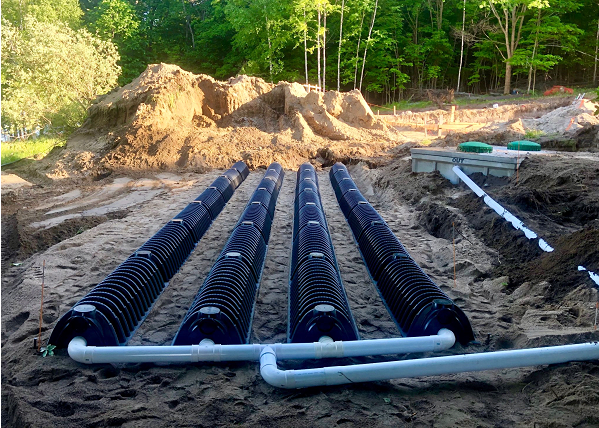If your home relies on a septic system, some essential maintenance practices are required to keep it functioning properly long-term. Avoiding certain actions can also prevent premature septic system failures. Read on for key do’s and don’ts when it comes to maintaining your septic tank and drain field.
Do: Inspect Your Septic System Annually
Conducting yearly inspections allows you to assess your septic system’s health and identify any potential issues early. Here are some steps to take:
⦁ Visually inspect the septic tank and drainage area for signs of standing water or foul odors, which may indicate a blockage.
⦁ Check septic tank screens and outlet baffles for clogging and clean if needed.
⦁ Measure the sludge and scum layers inside the tank; septic tanks should be pumped if sludge fills over 30% of the tank volume.
⦁ Note any leaks, cracks or other structural issues with the tank or drain field pipes.
⦁ Keep a detailed record of inspection results from year to year for ongoing monitoring of your system’s performance.
⦁ Visually check the condition of your septic tank and note any signs of damage, cracks or deterioration. Tanks made of steel usually need to be replaced after 20–25 years.
⦁ Keep records of all inspections, maintenance, pumping and repairs over the years. This allows you to track the system’s performance and identify any developing issues.
Annual septic system inspections help prevent small problems from becoming huge headaches down the road.
Don’t: Ignore Routine Septic Maintenance
It’s tempting to neglect septic system maintenance, especially if you don’t notice any obvious issues. But lack of routine care can lead to serious and expensive septic failures in the future. Excessive water flow into the septic tank from overuse of fixtures can disturb the sludge and scum layers, allowing solids to pass untreated from the tank, potentially overloading the drain field.
Without proper maintenance like annual inspections and scheduled pumping, solids can accumulate in the septic tank. This can result in wastewater backing up into your home or overflowing onto your lawn. Repairing damage from lack of maintenance is vastly more costly than just pumping the tank regularly.
Make septic care a priority by pumping the tank every 3-5 years. Annual inspections are also vital for preventative maintenance. Ensure the following:
⦁ Install an effluent filter on the outlet of your septic tank to prevent solids from entering the drain field. Clean the filter annually.
⦁ If your system has pump chambers, locate them and check that pumps and alarms are working properly.
Do: Conserve Water to Avoid Overloading Your System
The more wastewater that enters your septic tank, the more your drain field has to absorb and treat. Conserving water usage helps avoid overloading the system. Some water-saving tips:
⦁ Repair any leaky plumbing fixtures or toilets running continuously.
⦁ Install low-flow faucets, showerheads and toilets.
⦁ Only run dishwashers and washing machines with full loads.
⦁ Limit the number of loads of laundry done per week.
⦁ Take shorter showers instead of baths.
⦁ Be mindful of long showers or letting faucets run unnecessarily.
Every bit of water conserved counts when it comes to protecting your septic system.
Don’t: Pour Hazardous Chemicals Down Your Drains
It may seem convenient to pour house hold chemicals or oils down the drain, but this can seriously harm your septic system. Substances like paints, varnishes, thinners, pesticides, motor oil and anti-freeze kill the beneficial bacteria in your tank and drain field that decompose and treat waste. These chemicals can pass through the tank and pollute groundwater. Always opt for more environmentally-friendly products whenever possible.
Note: Avoid using drain cleaners, toilet bowl cleaners, disinfectants or antibacterial products, as they can kill the beneficial bacteria in your septic system.
Do: Use Your Septic System Properly
⦁ Some homeowners and tenants inadvertently send extra solids from food waste down their disposal, not realizing it stresses their septic tank’s capacity. The extra material fills the space more rapidly, requiring more frequent pumping to prevent solids from overflowing out of the tank. You should avoid using the garbage disposal to get rid of of extra food scraps, using the trash or compost instead.
⦁ Keep items like grease, oils, food scraps, diapers, feminine products, dental floss or cat litter out of the system to avoid clogs.
⦁ Check with your local health department before using any septic tank additives, as many are unnecessary or harmful to the system.
⦁ Ensure any tenants or transient guests are aware of the location and proper usage of your septic system. Explain what items should not be flushed or disposed of in drains or toilets. Provide instructions for conservation practices to avoid overloading the system.
Do: Protect Your Drainfield Area
The drain field or leach field is essential for filtering effluent from the septic tank. It’s vital to protect this area:
⦁ Never park vehicles, pave over, build structures or plant trees/shrubs over the drain field area, as this compacts the soil.
⦁ Maintain only a grass cover crop over the drain field, which allows for proper filtration.
⦁ Divert rainwater, sump pump outlets and surface runoff away from the drain field location.
⦁ Ensure the area has the proper slope and grading to prevent wastewater pooling.
⦁ Leave septic tank access lids clear for inspections and pumping.
⦁ Keep heavy equipment off the tank and drain field to avoid crushing pipes.
⦁ Only plant grass over the drain field, as other plants or trees may damage the pipes or interfere with wastewater movement through the soil.
⦁ Do not apply fertilizers, manure or yard waste to the drain field area, as it can harm soil treatment processes.
⦁ Maintain at least a 10 foot buffer between the drain field and trees/shrubs to allow for air flow and future repairs if needed.
Proper drain field care extends your septic system’s lifespan.
In Conclusion
By following these do’s and don’ts for septic system maintenance, you can avoid costly repairs and keep your system running smoothly for many years. Practising water conservation, routine inspections and pumping, avoiding chemical additives, and protecting your drain field are all key. Properly maintaining your septic tank and leach field protects your home, property and the environment.
Call Schlager Excavating for Professional Septic Services
For over 35 years, Schlager Excavating & Landscaping has provided quality septic system installation, repairs, pumping and maintenance in the Parry Sound and Muskoka regions. Contact us today at 705-732-1802 for a free quote on any septic service needs. We are fully licensed and insured to service all makes and models of septic systems. Trust your system to the septic care professionals!
Get In Touch With Us Today!

